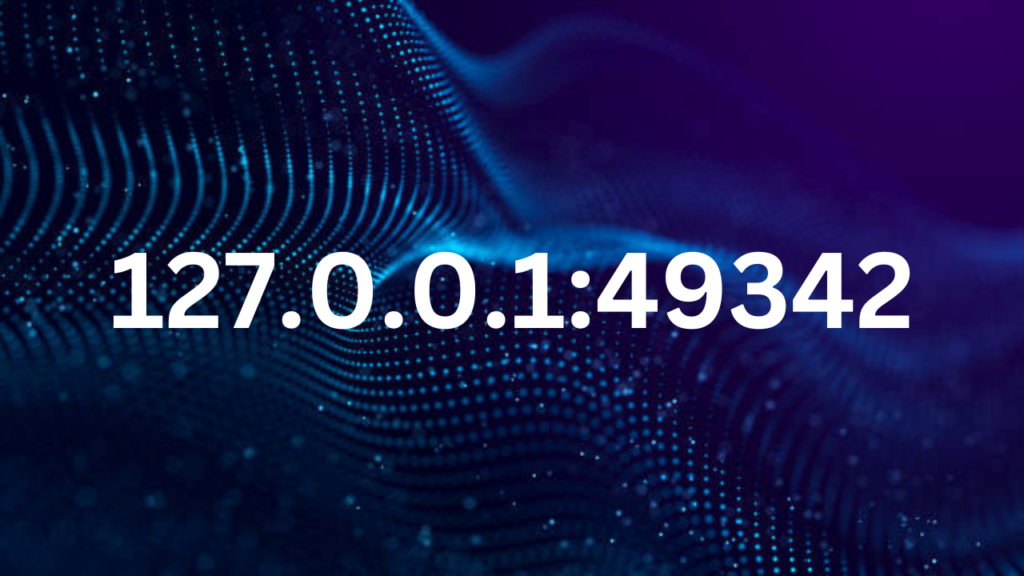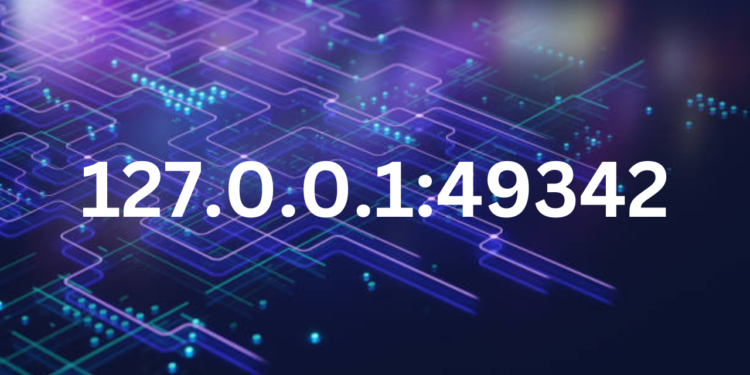When understanding how computers communicate, combining an IP address and a port number plays a crucial role. A fascinating example is 127.0.0.1:49342, a standard notation often encountered in local development and testing scenarios. Let’s dive deep into what this means, why it matters, and how it applies in practical use cases.
What Is 127.0.0.1?
The IP address 127.0.0.1 is widely known as the “loopback address.” In simpler terms, this address tells a computer to refer to itself. Instead of communicating over a broader network or the internet, the loopback address creates an internal channel for the computer to talk to itself.
Think of it as dialing your phone number to test a line. Developers and IT professionals use this method to check software, systems, or applications without leaving the confines of the local machine.
What Role Does 49342 Play?
The second half of the notation, 49342, is the port number. Ports act as channels or entry points through which applications can communicate. A port number is a marker that indicates a specific service, task, or process on a computer.
Port 49342 is an ephemeral port, meaning it is temporarily assigned to a specific process or connection. Unlike fixed ports reserved for well-known services (e.g., port 80 for HTTP or port 443 for HTTPS), ephemeral ports are dynamic. They’re typically used during temporary tasks like testing or facilitating local application connections.
Why Is 127.0.0.1:49342 Important?
This combination—127.0.0.1:49342—is more than just a random string of numbers. It represents a communication channel that developers often rely on. Here are a few reasons why this address and port are crucial:

- Local Testing
- Developers use 127.0.0.1 to simulate a network environment without requiring an external connection. Pairing it with a port like 49342 allows specific applications or services to interact locally.
- Application Debugging
- Debugging tools and environments often use loopback addresses with ephemeral ports. For example, when testing a web server or API, requests can be sent to 127.0.0.1:49342 to verify that responses are functioning as expected.
- Security and Isolation
- Loopback addresses are inherently isolated from external networks. Using 127.0.0.1:49342 ensures that data remains confined to the local system, which is essential for sensitive development work.
- Custom Application Communication
- Multiple applications running on the same machine can use different ports to communicate. When one application sends data to another, a port like 49342 can be the dedicated channel for that connection.
How Is 127.0.0.1:49342 Used in Real Life?
Scenario 1: Testing a Web Application
Imagine you’re building a web application on your computer. Instead of hosting it online immediately, you might run the app locally. The application server could be accessible via 127.0.0.1 on a specific port like 49342. Opening your browser and typing http://127.0.0.1:49342 lets you view and test your application before deploying it.
Scenario 2: API Development
API developers often test endpoints locally before making them publicly available. For example, a REST API might be set up to listen for requests on 127.0.0.1:49342. Tools like Postman can send requests to this address to check the API’s behavior.
Scenario 3: Debugging Software
When debugging software, developers might run multiple services simultaneously. To avoid conflicts, each service is assigned a unique port (like 49342). The loopback address ensures all communications happen within the same machine.
Benefits of Using 127.0.0.1:49342
- Efficiency: It eliminates the need for external networking resources, making it quick and reliable for testing.
- Security: The loopback address is inherently secure, as it does not expose data to the outside world.
- Convenience: Using dynamic ports like 49342 ensures flexibility, allowing multiple processes to operate without interference.
- Standardization: Tools and frameworks widely support loopback addresses, making them a universal choice for local development.
Common Misconceptions
- “127.0.0.1 connects to the internet.”
- False. The loopback address does not route data to the internet or external networks. It’s strictly for local machine use.
- “Ports like 49342 are permanent.”
- Not true. Ephemeral ports are temporary and are assigned dynamically for specific tasks. They can vary with each session.
- “Using 127.0.0.1:49342 requires special software.”
- Any computer can use this address and port for local testing, as it’s built into the standard networking protocols.
Also Read: Season of Discovery Talent Calculator: Master Your WoW Classic Experience
Final Reflections
The combination 127.0.0.1:49342 might initially seem technical, but it’s a fundamental tool in modern software development and testing. A secure, efficient, isolated communication channel empowers developers to create, test, and debug applications confidently.
Understanding how this works is valuable not just for developers but is an essential piece of knowledge for anyone involved in IT, networking, or software. Whether running a simple web server or debugging complex APIs, 127.0.0.1:49342 is the key to seamless local communication.





































Comments 1